2027 Elections: Who Will Succeed INEC Chairman? Nigerians Speak
- As Professor Mahmood Yakubu’s tenure as INEC chairman nears its end, Nigerians are voicing strong expectations for his successor
- Citizens across civil society, academia, and advocacy groups are calling for a leader defined by integrity, competence, and independence, not regional or political affiliations
- Many insist that the appointment process must be transparent and inclusive to restore public trust in Nigeria’s electoral system
With less than two months to the end of Professor Mahmood Yakubu’s tenure as the chairman of the Independent National Electoral Commission (INEC), Nigerians have begun voicing their expectations for his successor.
In interviews with Weekend Trust, citizens from various sectors stressed that the next INEC chairman must embody integrity, competence, and impartiality, while rejecting the idea that geopolitical zone should influence the appointment.
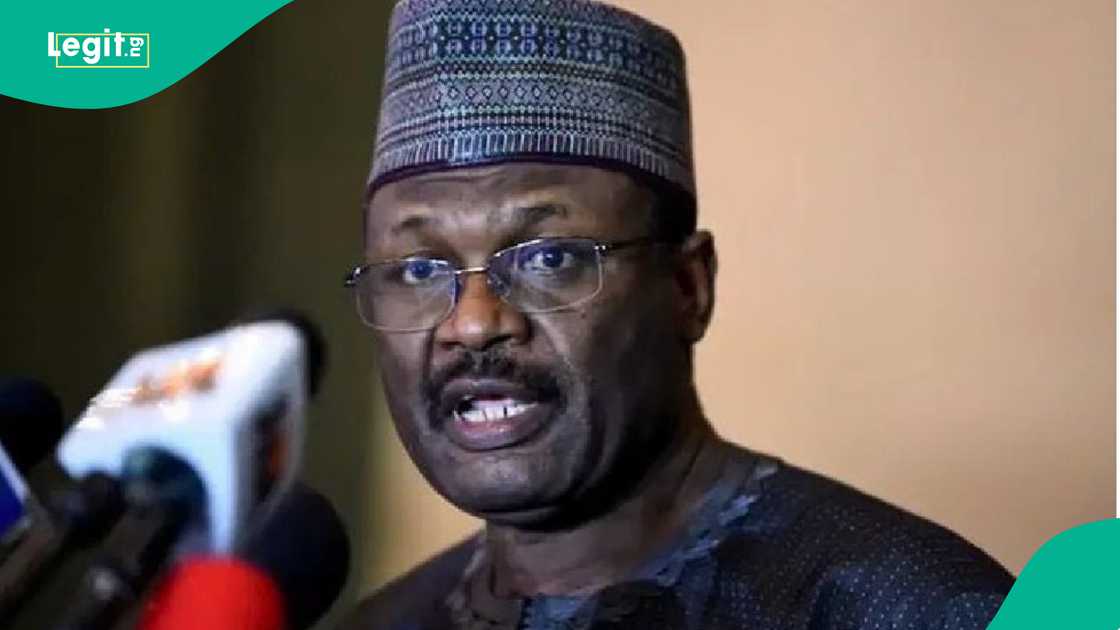
Source: Twitter
Multala Abubakar, president of the Arewa Defence League, stated that the role of INEC chairman demands “strong character, competence, and a fearless disposition.”
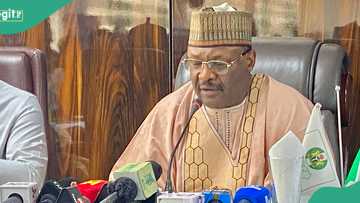
Read also
INEC chairman speaks as he finishes up his term in office, calls for constitutional amendment
He referenced former chairman Professor Attahiru Jega as an example of leadership that marked a departure from past practices. However, Abubakar lamented that subsequent elections failed to meet expectations, particularly after the 2015 polls.
He dismissed the relevance of zoning, tribe, or religion in the selection process, arguing that “what we are talking about is the capacity of the person to deliver.”
Abubakar urged Nigerians to revisit the Uwais report, describing it as “the shortest way for us to get out of this cycle of rigging, inconclusive elections, and impunity.” He also called for Senate confirmation of the INEC chairman, warning that presidential appointments tend to favour partisan interests.
Citizens advocate for academic and technocratic expertise
Joseph Kyuior, a university lecturer, emphasised the importance of academic qualifications, suggesting that the next chairman should hold a PhD or be a professor in the social sciences.
He advocated for a candidate from the north-central zone but opposed presidential selection, saying,
“No, I don’t subscribe to the president choosing who becomes the INEC chairman.”
Civil society coordinator Emmanuel Onwubiko argued that professional background should not be the primary criterion.
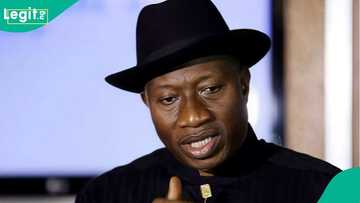
Read also
Just in: Ex-president Jonathan instructs Nigerians on what action they should take in 2027 election
Instead, he said, “the level of patriotism and independence of mind of the person should matter.”
Onwubiko stressed the need for a chairman who could “look the president in the eye and refuse to be used to manipulate elections.”
Integrity, ICT skills, and democratic experience
Gender advocate Eunice Nnachi highlighted the importance of experience in electoral management, law, ICT, or public administration. She noted that while professional background is relevant, “the most important consideration should be on the integrity and experience in democratic governance of the person so considered.” Nnachi also called for digital literacy, citing the growing demand for electronic voting.
She insisted that competence and credibility should outweigh regional considerations but acknowledged the value of inclusivity. “It would be good if every zone feels represented in such high offices,” she said.
Nnachi recommended a transparent process involving the National Assembly, civil society organisations, and other stakeholders. She added that while the president has the constitutional right to nominate, “there should be checks, like confirmation by the Senate or a panel.”
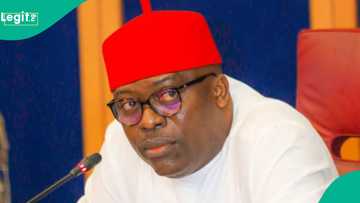
Read also
Where is Fubara? Rivers governor yet to appear publicly after reinstatement and whereabout unknown
Citizens demand transparency and independence
Edward Akpen, a lecturer and businessman, said the next INEC chairman must be “someone who carries integrity and credibility above everything else.” He warned against appointing political insiders, suggesting that a technocrat, legal expert, or academic would inspire greater public trust.
Akpen argued that “appointing a familiar political face would only worsen scepticism.”
He rejected the idea of geopolitical zoning as a decisive factor but proposed that a zone which had not recently produced a chairman could help balance representation. Akpen called for a more transparent selection process, involving the National Assembly, civil society, and possibly the judiciary. “If the appointment looks politically motivated, it will weaken trust before the new chairman even begins,” he said.
Citizens call for inclusive, participatory selection process
Development practitioner Mimidoo Uhundu echoed calls for integrity and fairness, stating,
“We need a person who places national interest above personal or political loyalty.”
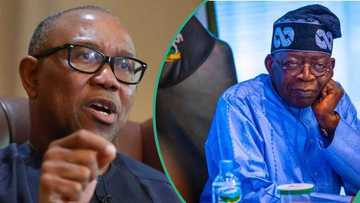
Read also
'Nigeria’s democracy is dying': Peter Obi warns, lists conditions to save country from collapse
She favoured candidates with backgrounds in governance, law, or civil society and urged that women’s and youth perspectives be considered.
Uhundu supported federal character principles for balance but maintained that competence and independence should be paramount. She advocated for broader consultation in the selection process, involving political parties and civil society.
“INEC is supposed to be independent of the executive,” she said, adding that “a more participatory and transparent process will boost confidence in the electoral system.”
INEC chairman speaks as he finishes up his term in office
Legit.ng earlier reported that the Independent National Electoral Commission (INEC) reaffirmed its dedication to fostering inclusive democracy in Nigeria, placing particular emphasis on enhancing women’s participation in politics and party leadership.
This pledge was reiterated by INEC chairman, Professor Mahmood Yakubu, during an advocacy visit by the Women’s Collective Forum to the commission’s headquarters in Abuja .
Source: Legit.ng

